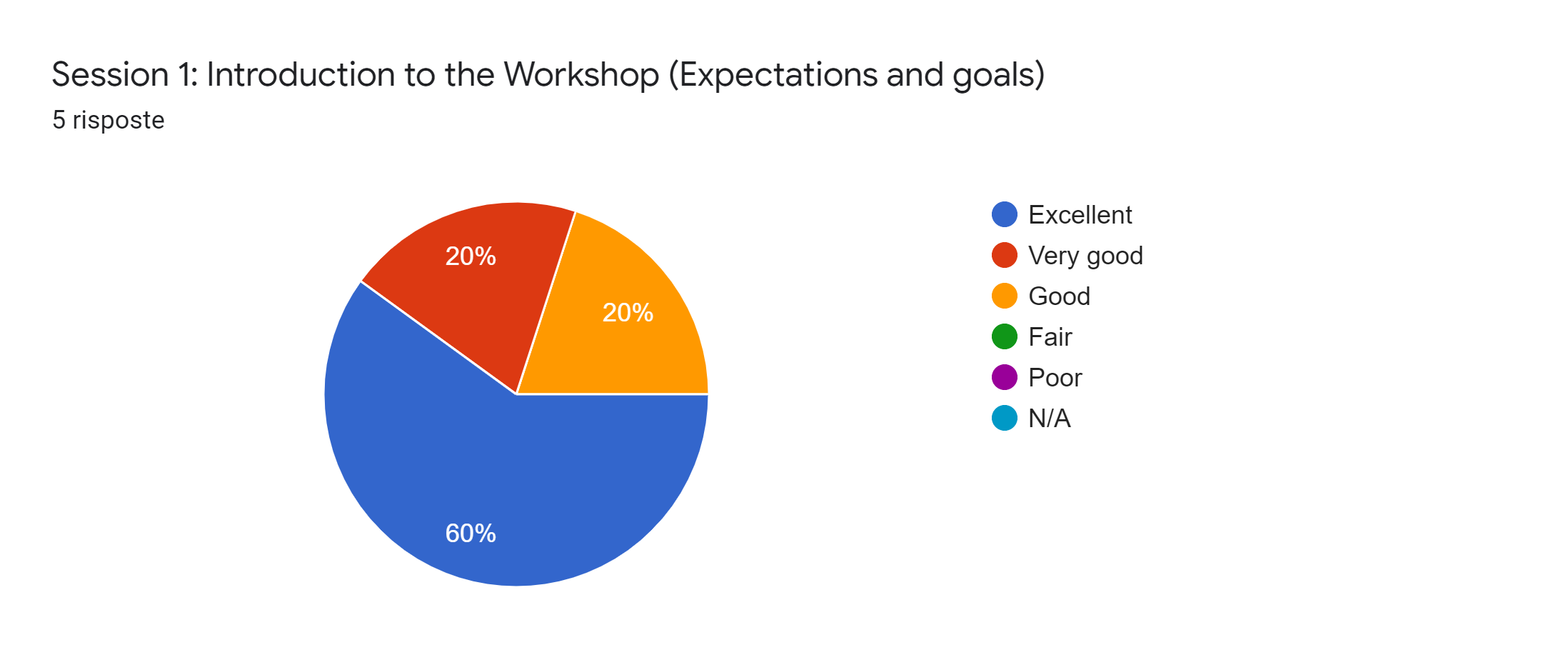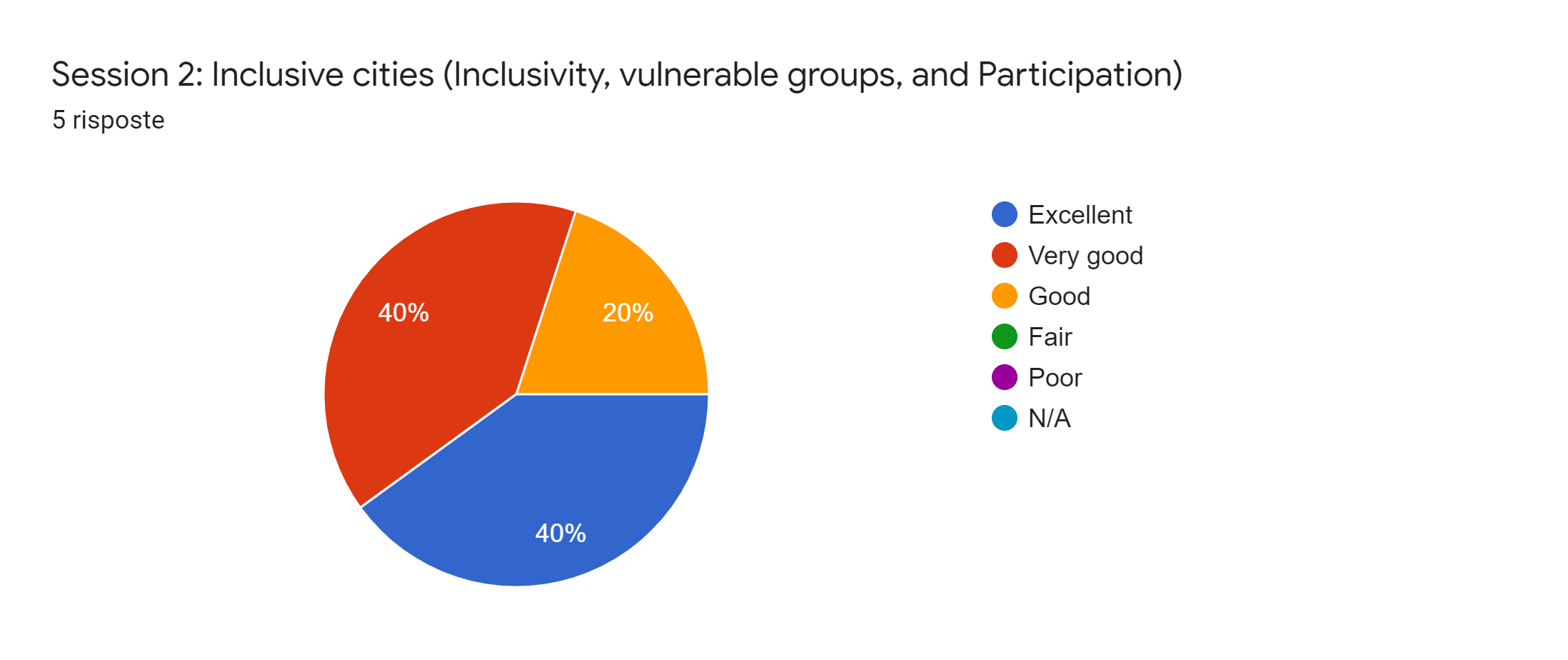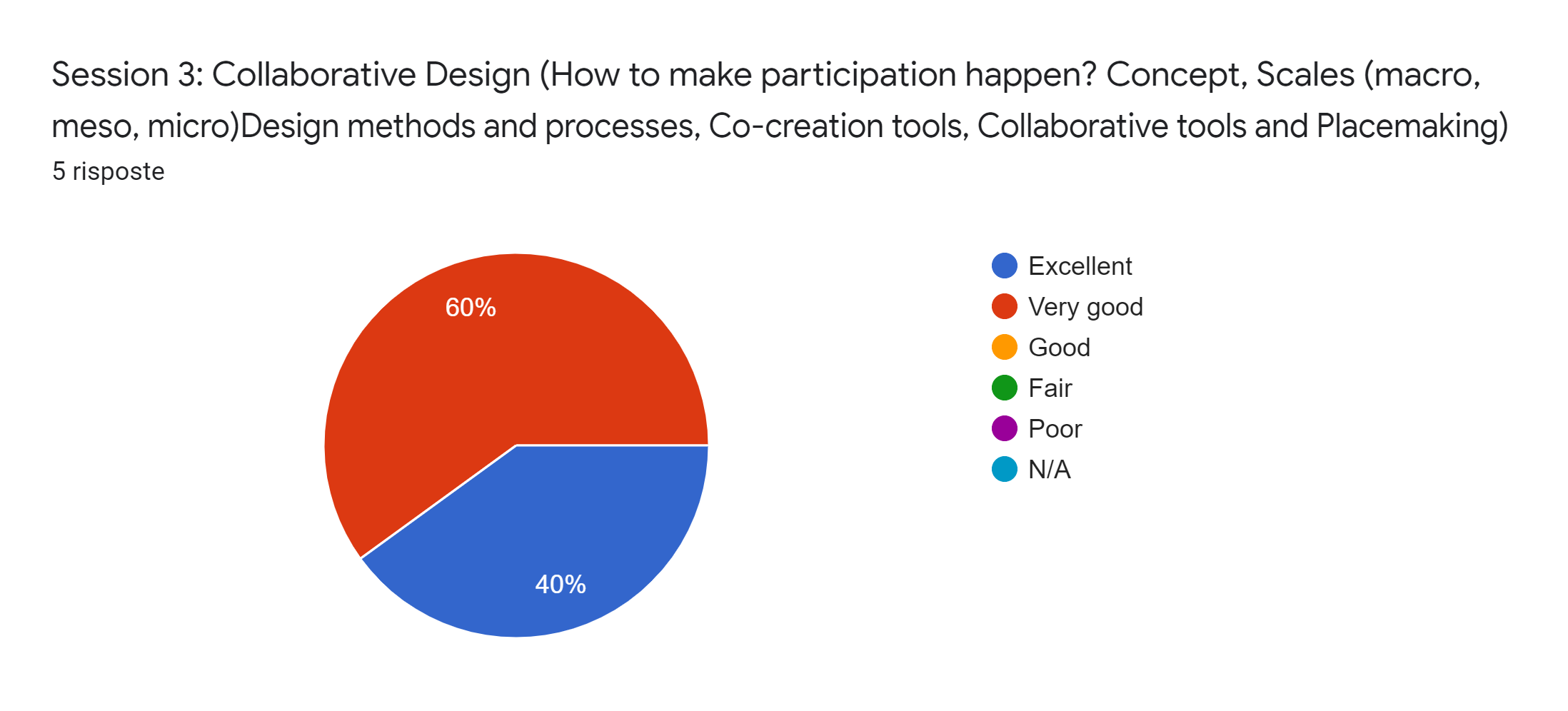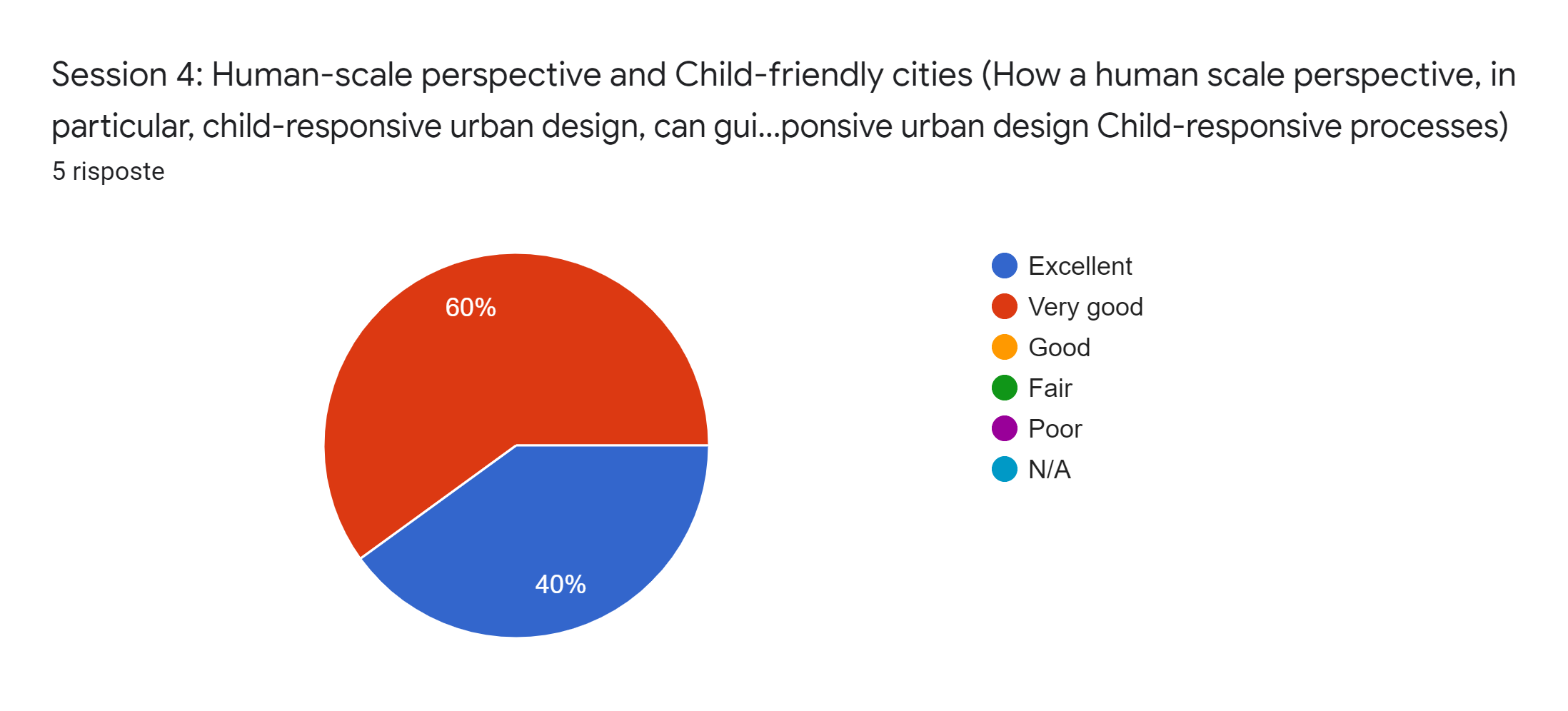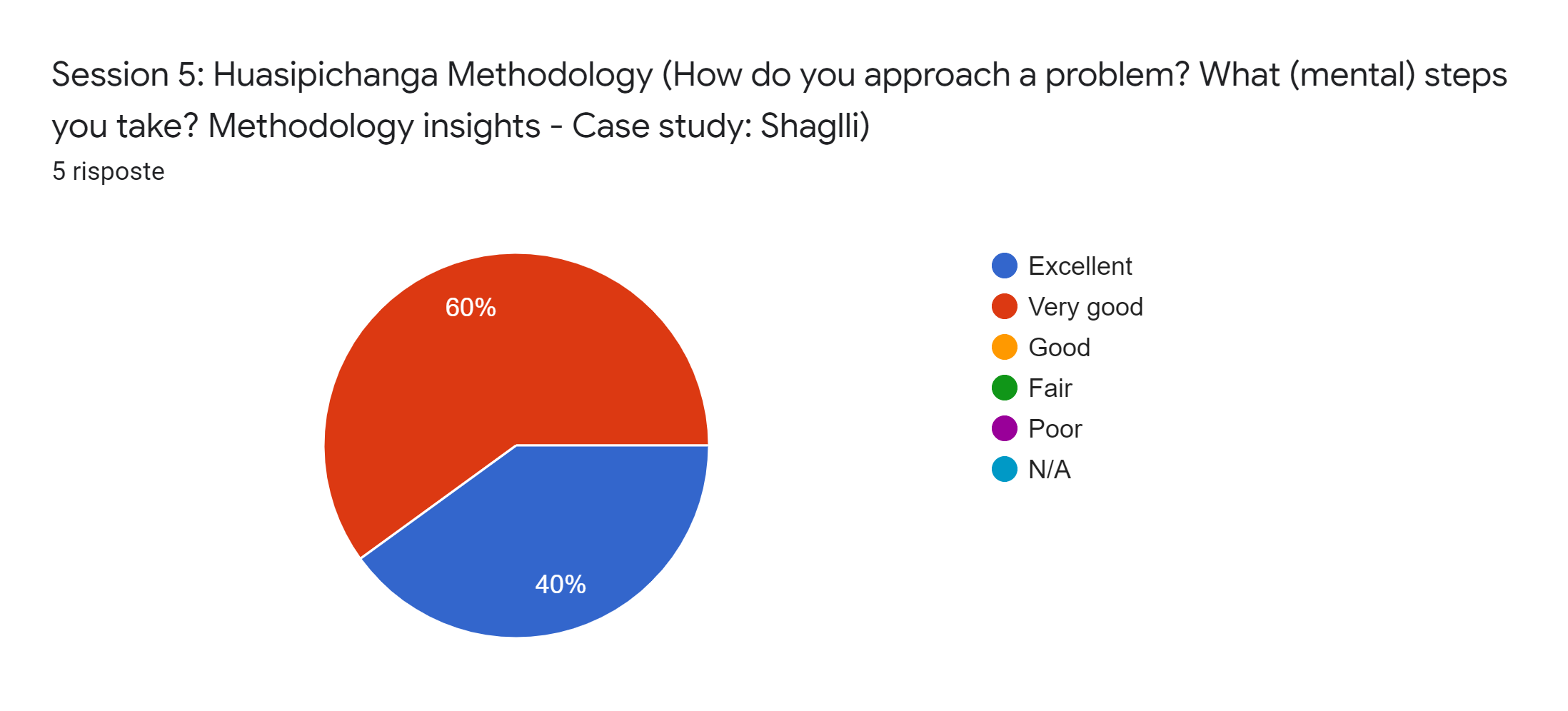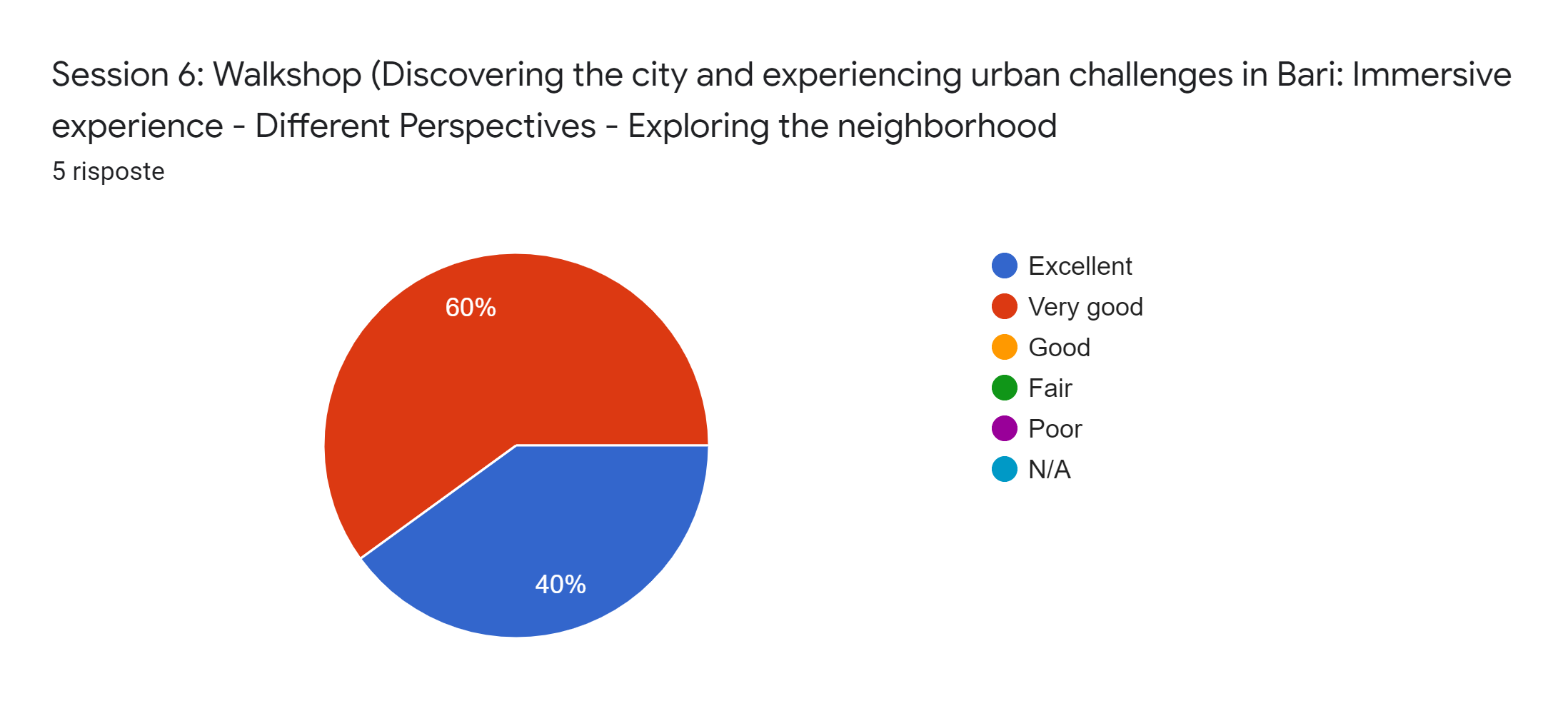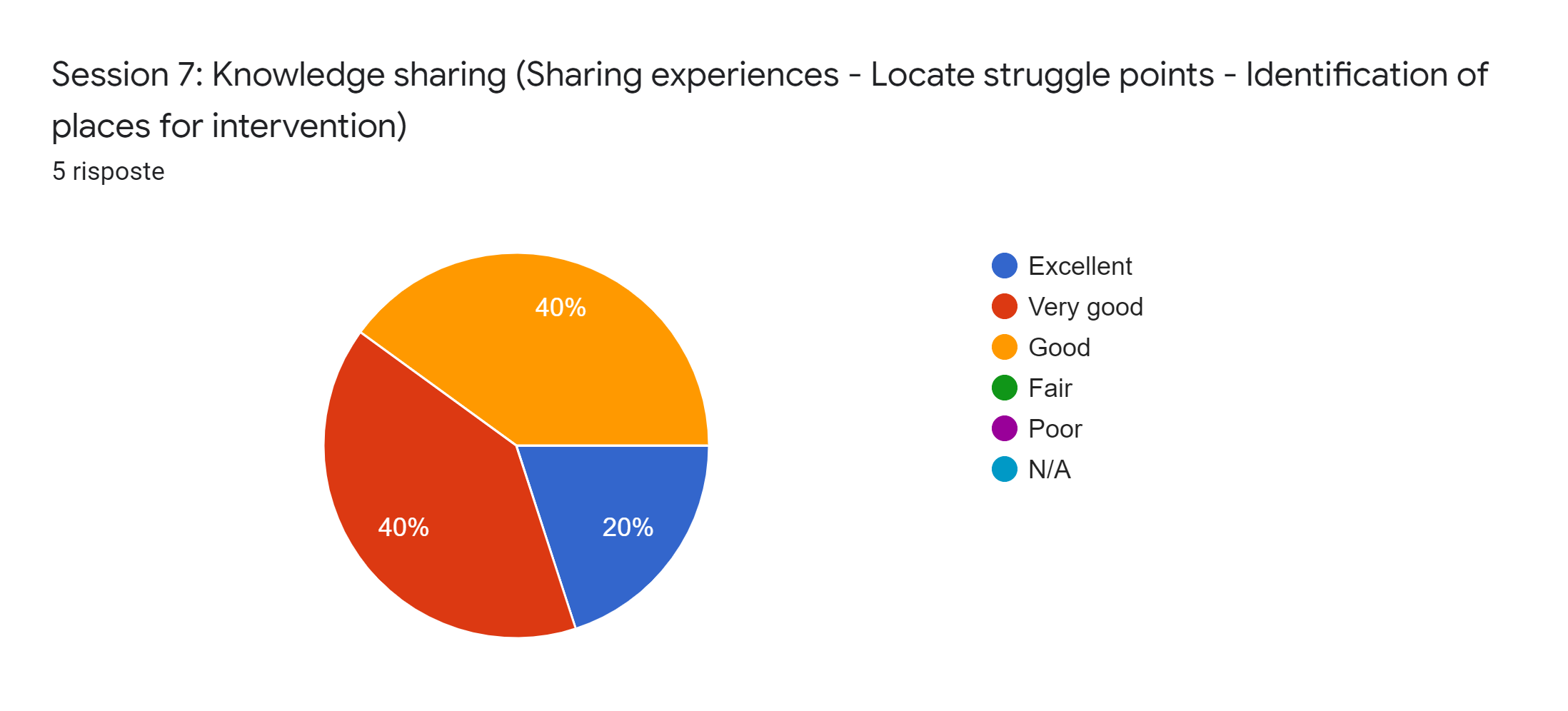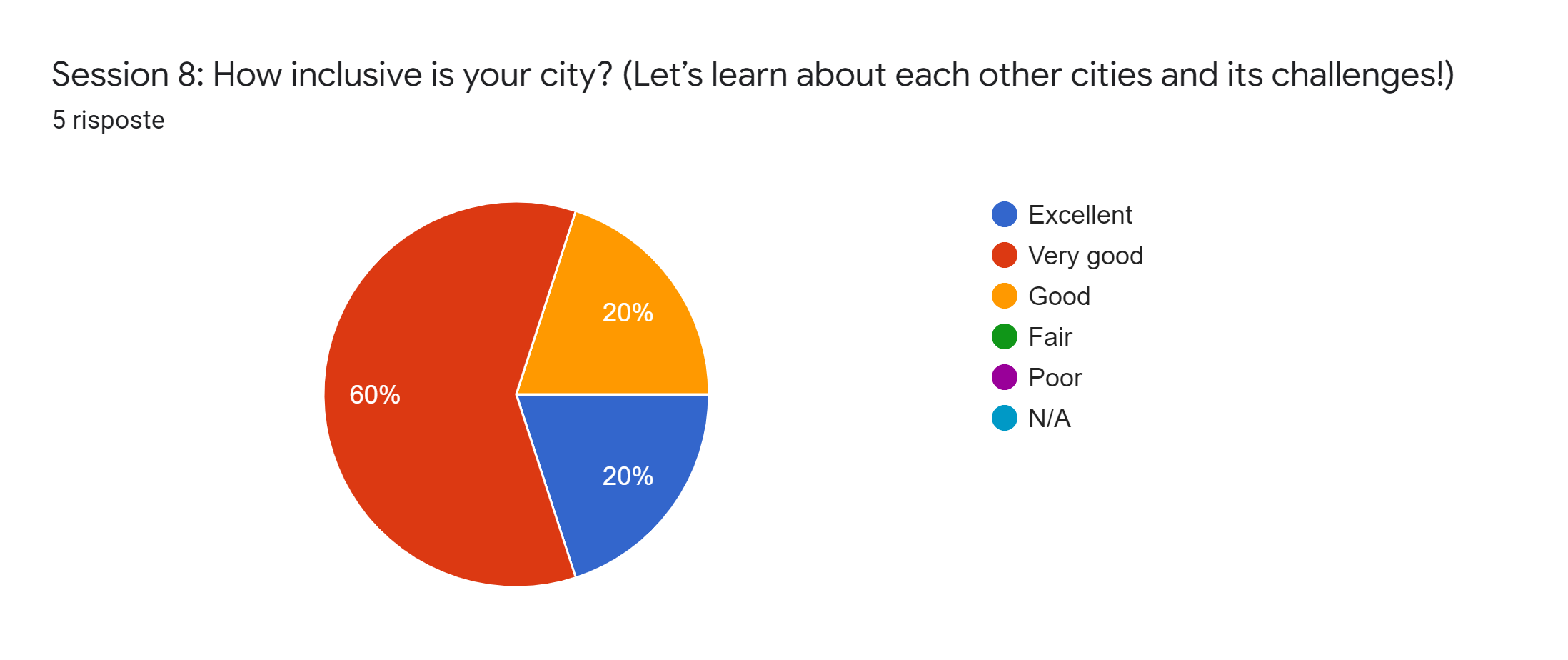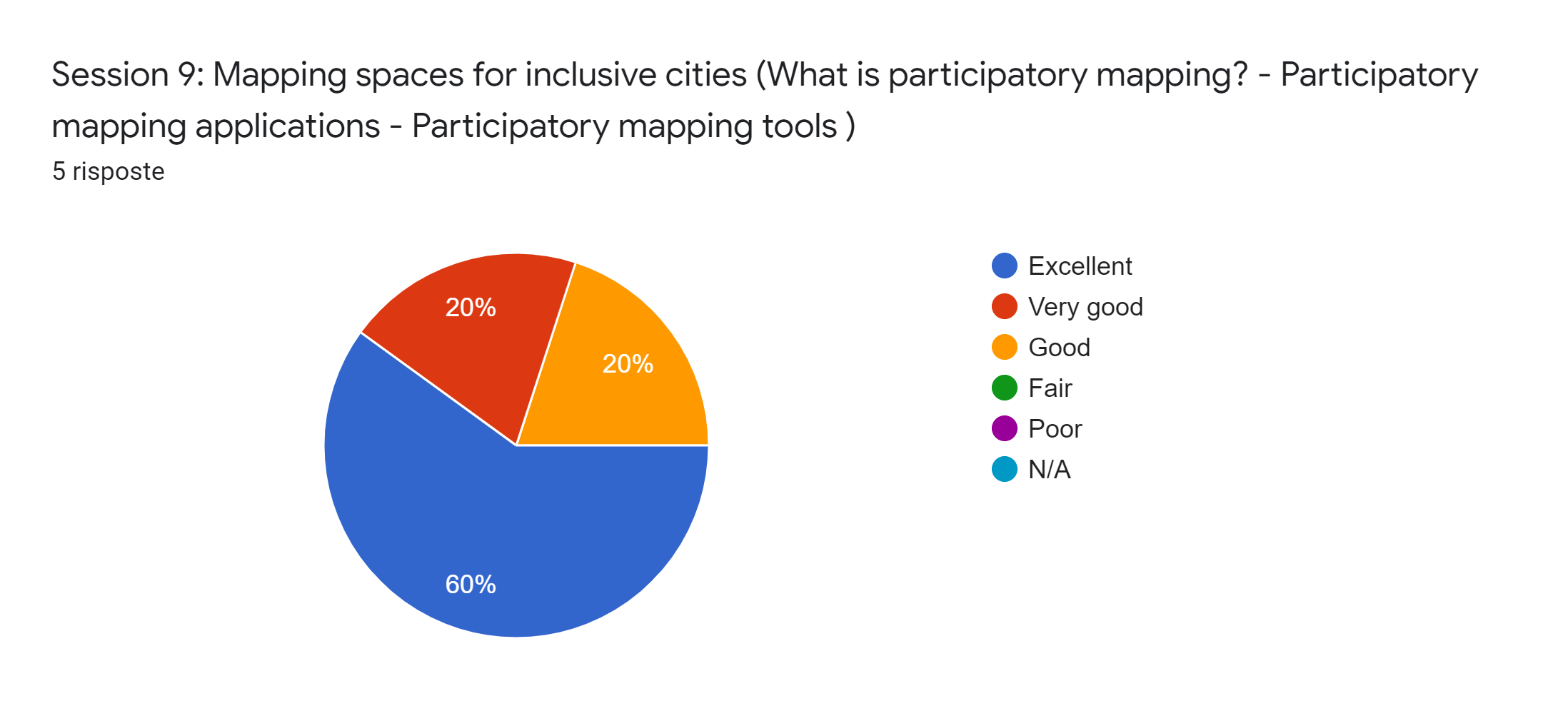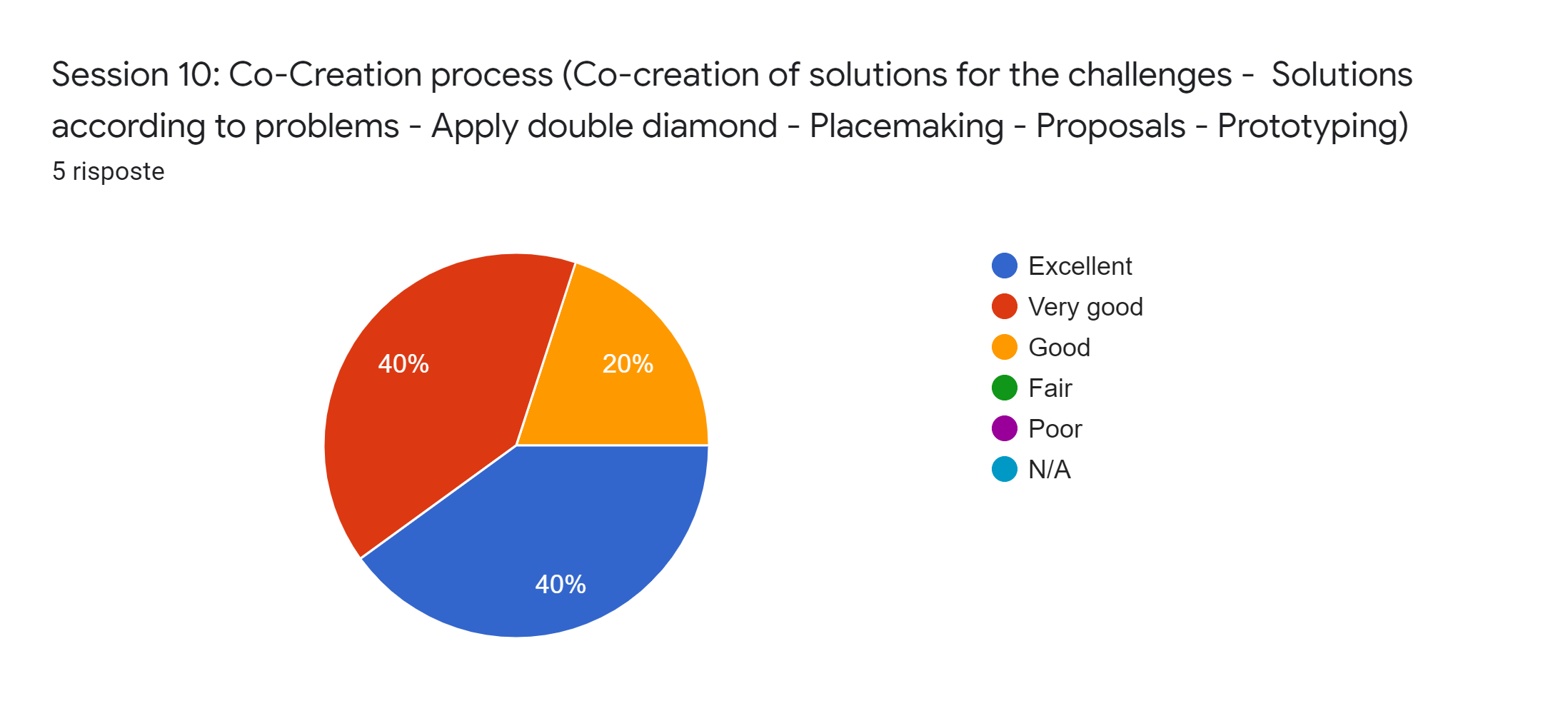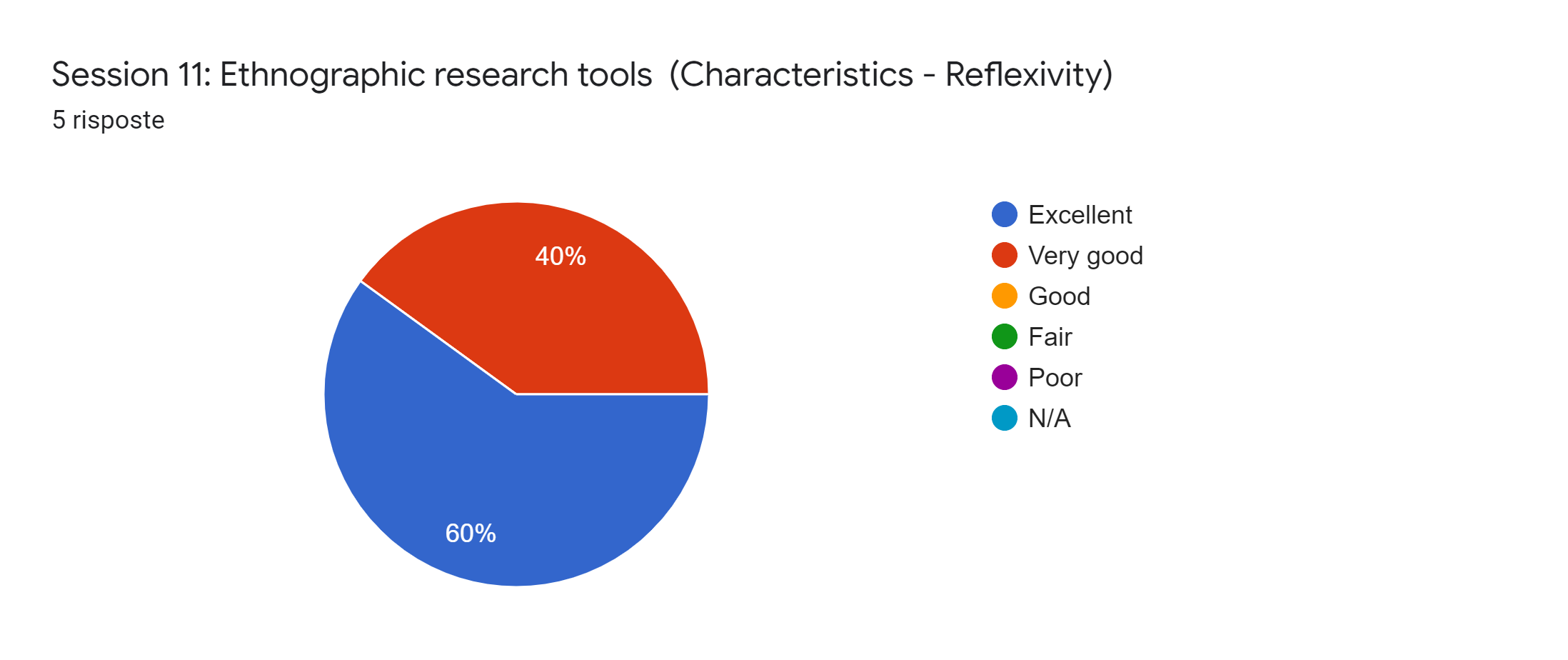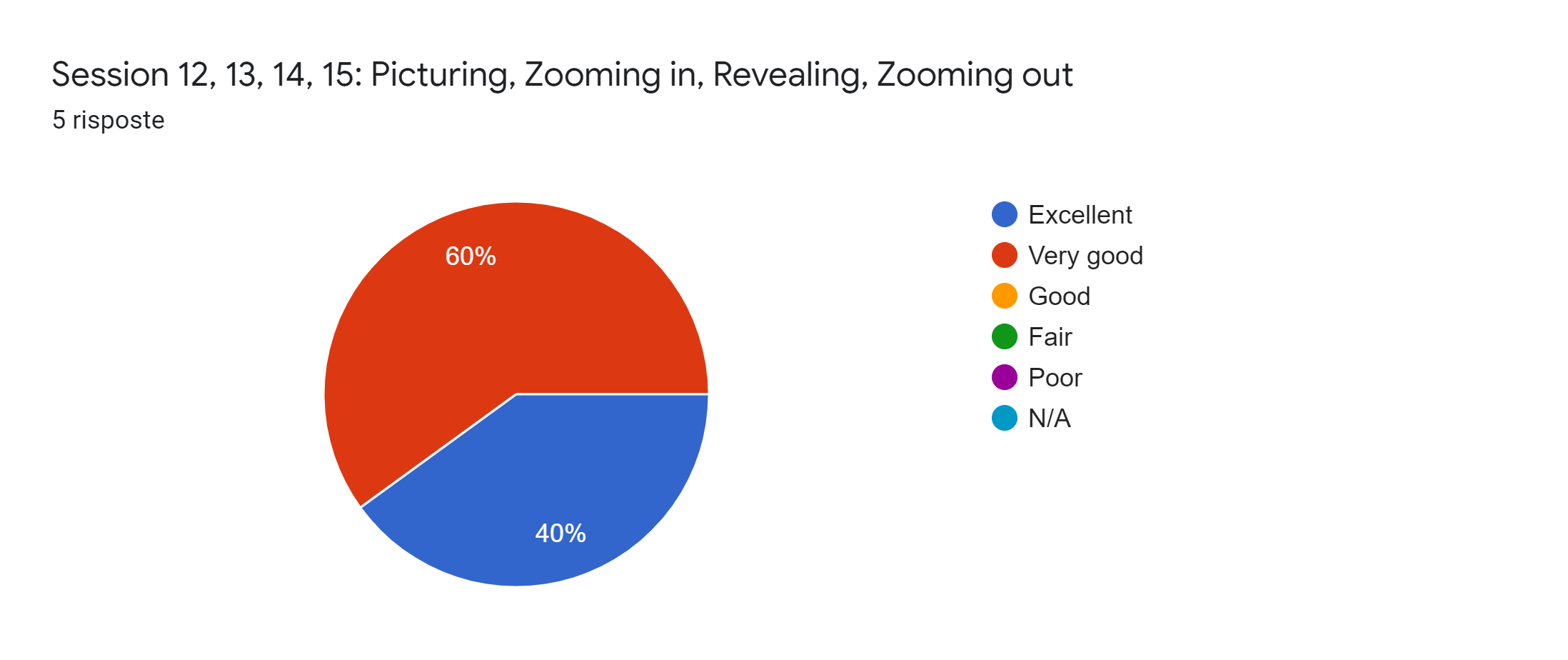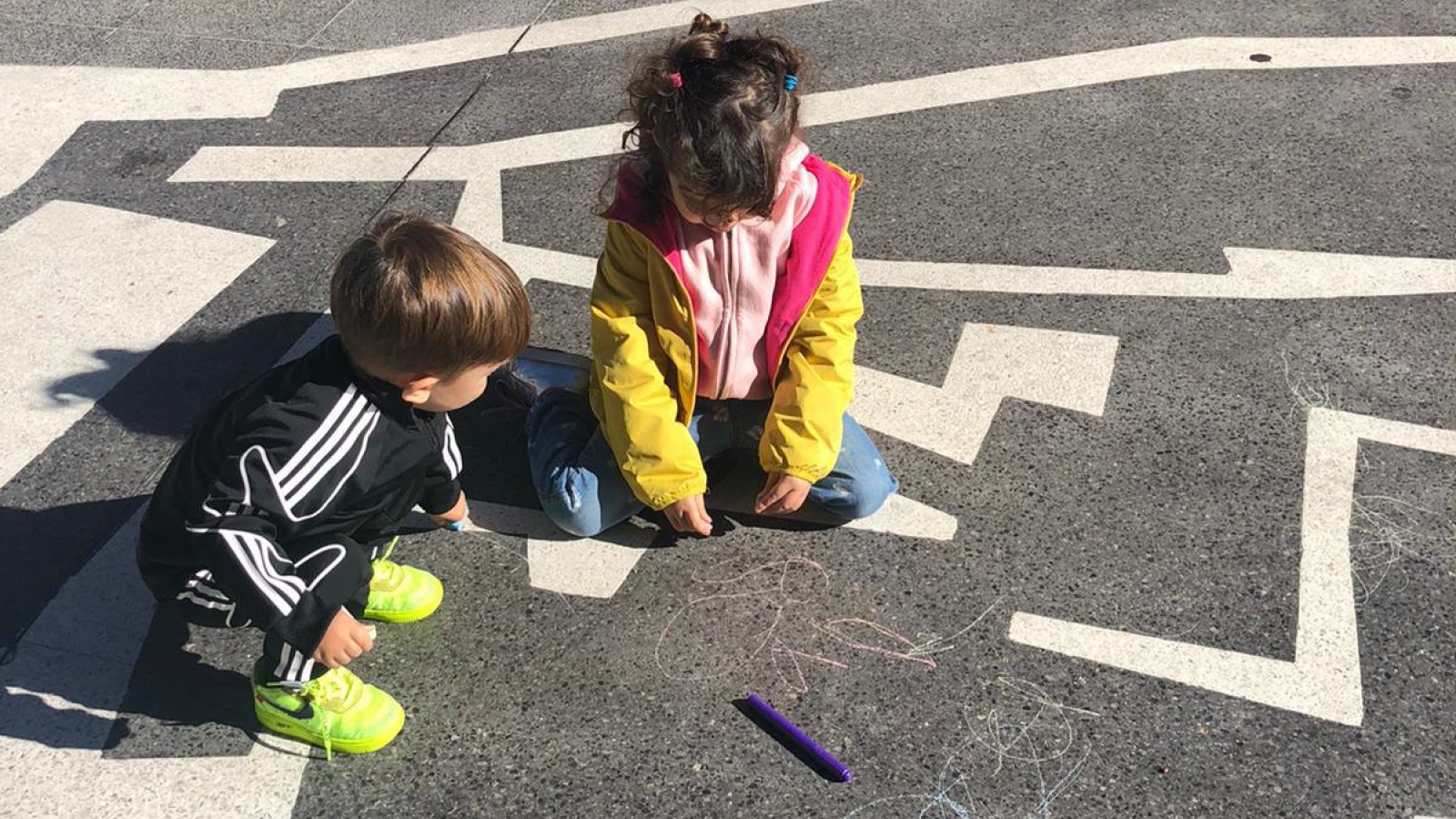
Title, place of the workshop
"Co-creation of Tools for Inclusive Cities" - Bari, Italy
Background to the workshop
Audience: a total of 6 participants - architects/landscape designers, urban planning students, placemakers, city makers, and psychotherapists from Italy, Germany and Mexico.
Time: a three-day workshop, whose content is structured based on theories, data collection, and analysis-proposal.
Objectives
● Sharing knowledge about the co-creation process and its application.
● Development of collaborative tools to understand, map, and enhance socio-spatial issues in Bari, Italy.
Discussions and training activities
DAY 1 — SCREENING
Theories, concepts and space experience
The first day focused on sharing theoretical content. The taught theories and concepts are:
● Inclusivity
● Collaborative design
● Human-scale perspective and Child-friendly cities
● Huasipichanga Methodology
The goal of these sessions was to inform participants about the current trends in urban planning and development from a collaborative working approach. At the end of the first day, a walkshop around Bari was organized to discover the city and get insights into residents’ interaction with their environment from diverse and unique perspectives.


DAY 2 — PICTURING
Start with the co-creation process
After standing on stage during most of the first day, the second day is all about the participants playing the leading role. They were asked to present their home cities and identify three challenges. The second session of the day started with a short presentation. We shared knowledge about participatory tools to map spaces for inclusive cities, used for the data collection starting that day, and concluded the following morning.
Afterward, the participants got to split into two groups to identify a particular urban-related challenge in Bari, choose an adequate co-creation process, and participatory tools that could tackle the chosen issue. As a result, mobility and identity were the challenges chosen by the participants to analyze. On this note, they developed two strategies to understand how to approach and intervene Giardino Garibaldi, located nearby La Scuola Open Source and Via Sparano da Bari e Corso Vittorio Emanuele, a pedestrian street with a map of Bari design on the ground.

DAY 3 — ZOOMING IN, CAPTURING, REVEALING, ZOOMING OUT
Development and completion of the co-creation process to tackle urban issues in Bari
The third day starts with an introduction about what is ethnographic research and in particular, what is the role of makers and researchers during the fieldwork phase of a project. This theoretical insight helps the participants to intervene in the selected areas and conclude the data collection. The main tools used are interviews, playful workshops, observation, and surveys. This information was analyzed and developed in a high-level proposal, presented and discussed in a collaborative group session. The workshop concluded with an open conversation about the process, impact, and outcome evaluation of the project exercise and, of course, with a Huasipichanga celebration.

Recommendations based on the evaluation of the workshop
Based on the evaluation form shared among the participants, the workshop can be defined as successful. The gathered answers show that all the participants express positive evaluations in regards to the WS content and structure, the communication with the lecturers, and their knowledge. A total score of 4,5 represents the level of expectation fulfillment, where 5 is the maximum score. However, there is always room for improvement regarding logistics (registration, payment, organization, etc.), as well as the communication with the local partners, La Scuola Open Source.

Among all the participants’ comments and recommendations, we find the following the most relevant to improve the workshop for future events:
● “The outcome and the interaction of the WS were influenced by the number of participants; a group of 15 would have been perfect.”
● “It would be precious to spend more time working directly on-site and with users.”
● “Addressing the last session to an actual occurring problem or a problematic area in the city of the workshop.”

Follow up action plan to contribute further to the project’s objectives
In light of the workshop objectives and Huasipichanga mission, an action plan is under development to improve the quality of the activity and define the strategic partner for an effective dissemination campaign. The current focus stands on developing a strategy to address diverse target groups, from the public sector to educational institutions, located in the Global South.
Conclusion
The overall experience of the workshop - Co-creation of Tools for Inclusive Cities - represents the first successes from the Huasipichanga team in Europe as ambassadors for inclusive practices in urban planning.
Acknowledgments of collaborations and sponsors
We are glad to thank La Scuola Open Source of Bari to welcome us, and the workshop participants for the collaboration and sponsor.
Theoretical material bibliography
The content of the workshop is based on a wide variety of academic literature and tools from practice. The complete bibliography can be found here.
Annex 1: People involved
List of participants: Rossella Dattoli (Bari, Italy), Andrea Gelao (Bari, Italy), Daniele Stillavato (Milano, Italy), Nils Kaltenpoth (Berlin, Germany), Paulina Nava Galicia (Mexico City, Mexico), Enrico Corsi (Prato, Italy).
Staff involved in planning and coordinating the training workshop:
● Huasipichanga team: Giulia Gualtieri, Melissa Cavanna, Bernarda Coello, Victoria
Chavez, Viviana Cordero
● La Scuola Open Source team: Lucilla Fiorentino, Alessandro Tartaglia, Alessandro Balena, Silvia Zotti, Maurizio di Luzio
Annex 2: Visual information on participants’ evaluation


